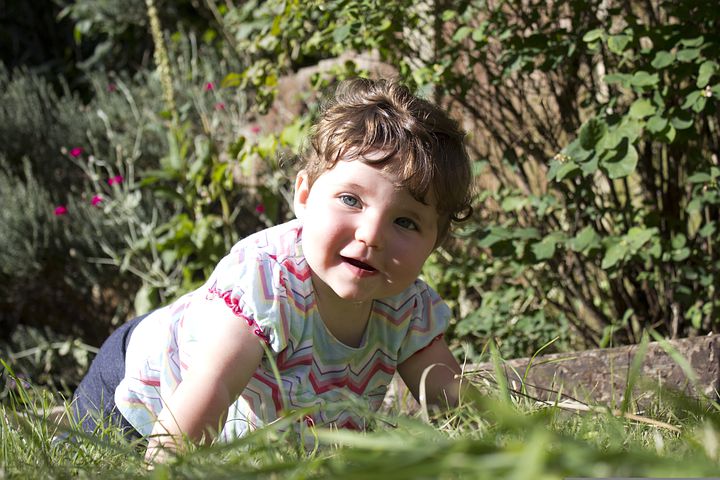Montessori and Special Education: Tailoring Learning to Individual Needs
 As schools strive to accommodate the diverse needs of all #students, the integration of children with special needs into mainstream #classrooms has emerged as a critical focus for #educators and policymakers.
As schools strive to accommodate the diverse needs of all #students, the integration of children with special needs into mainstream #classrooms has emerged as a critical focus for #educators and policymakers.
ChildCareEd highlights the intersection of Montessori education and special needs, highlighting how the principles of this educational model can be effectively applied to create inclusive classrooms. We will examine tailoring educational experiences to meet the specific needs of children with special needs.
Montessori classrooms involve several key components:
-
Collaboration with Stakeholders: Montessori educators actively engage with #parents, specialists, and therapists to gather insights about each child's specific needs.
-
Goal Setting: Measurable goals tailored to the child's unique abilities and challenges. These goals are designed to be achievable and relevant, providing a clear roadmap for both educators and students to follow, which helps in tracking progress effectively.
-
Accommodations and Modifications: Necessary accommodations and modifications to the curriculum and learning environment. This may involve adjusting materials, teaching methods, or assessment strategies to better suit the child's learning style, ensuring meaningful #engagement with the content.
-
Regular Monitoring and Assessment: Educators regularly evaluate the child's progress towards their goals, making adjustments to the plan as needed. This iterative process keeps the learning experience dynamic and responsive to the child's evolving needs.
-
Flexible Learning Environment: Montessori classrooms are designed to be adaptable, this flexibility creates a space where children can thrive according to their individual learning preferences, promoting a sense of comfort and security.
-
Encouragement of Independence: Montessori education emphasizes fostering independence and self-directed learning. Students are encouraged to take ownership of their learning journey, which builds confidence and self-esteem—crucial elements for their overall #development.
-
Peer Interaction and Support: The mixed-age classroom structure in Montessori settings allows for peer mentoring and social interaction, which can be particularly beneficial for special needs students. This environment promotes collaboration and #empathy among students, helping to break down barriers and foster a sense of community.
References
- https://austinchildrensacademy.org/aca-blog/supporting-special-needs-students-in-montessori-schools/
- https://montessori-australia.com/blogs/montessori-australia/montessori-for-different-learning-styles-tailoring-education-to-individual-needs?srsltid=AfmBOooJYo8BpzuEE0AuXkOPTk4ZvRdeHghFaA70XiPpXxKhN-Fh2_-A
Montessori Education for Special Needs
Montessori education is inherently flexible, allowing for the customization of learning environments to cater to children with disabilities and neurodivergences. This adaptability is crucial in fostering an inclusive atmosphere where every child can thrive according to their #developmental pace and personal interests.
Key Adaptations in Montessori Education for Special Needs
-
Individualized Learning Plans:
- Montessori educators conduct careful observations to assess each child’s developmental stage, tailoring activities to align with their specific needs rather than their chronological age.
- This personalized approach enables children with #developmental- #delays to engage with materials suited to their current abilities, minimizing frustration and enhancing their chances of success.
-
Sensory-Friendly Environments:
- Montessori classrooms are designed to reduce #sensory overload, which is particularly beneficial for children with sensory sensitivities.
- Teachers can create calming spaces, such as peace corners, equipped with sensory tools and fidget toys, allowing children to self-regulate and return to learning when they feel ready.
-
Flexible Learning Spaces:
- Unlike traditional classrooms, Montessori environments encourage movement and exploration. Children can choose to work at tables or on mats, which is especially helpful for those who may struggle with sitting still for extended periods.
- This flexibility supports various learning styles and needs, allowing children to engage with materials in a way that feels comfortable and natural to them.
-
Incorporation of Interests:
- Montessori educators can weave a child’s interests into learning activities, making tasks more engaging and motivating. For instance, using a child’s favorite theme, such as sports, can help them connect with challenging subjects like #math.
- This method not only enhances motivation but also fosters a love for learning by making it relevant and enjoyable.
-
Support for Stimming Behaviors:
- Recognizing that self-stimulating behaviors (stimming) are often a means for children to manage sensory input, Montessori classrooms can provide materials that allow for constructive stimming.
- By incorporating activities that satisfy sensory needs, educators can facilitate learning while respecting the child’s natural coping mechanisms.
-
Structured Routines:
- Many children with special needs thrive on routine and structure. Montessori educators can establish predictable schedules while allowing for some flexibility, helping children feel secure and prepared for transitions.
- This balance can reduce anxiety and promote a sense of control, which is essential for children who may struggle with changes in their environment.
-
Community and Collaboration:
- Montessori education emphasizes community and collaboration among students. This social aspect can be particularly beneficial for children with special needs, as it fosters peer relationships and encourages social skills development.
- Creating a supportive classroom #culture where diversity is valued helps all children feel included and respected.
References
- https://printables.montessorinature.com/special-needs-montessori/
- https://dannicowoodworks.com/blogs/dannico-woodworks-blog-1/unlocking-potential-the-impact-of-montessori-education-on-students-with-disabilities-and-neurodivergences?srsltid=AfmBOoqha8tkgD4lBXzLsMtXVXJVj9HUevfZbg87R2OI0l8DCGiWmFuK
#developmental-delays
- CDA Subject Area 7
- CDA Bridge Bundle: Infant/Toddler without Portfolio Review
- Tailoring Instruction to Children's Needs
- Individual Needs & IEPs for School Age
- Inclusive Montessori: Supporting Diverse Learners in the Classroom
- CDA Bridge Bundle: Family Child Care without Portfolio Review
- Seeing All of Me: Overview of Autism and ADHD
- What Makes Me Special: An Overview of Autism and ADHD
- Supporting School Age Development ONLINE
- Supporting diverse learners and special needs
- Children with Special Needs
- ASQ Online Developmental Screening for Enhanced Child Development
- Shining a Light on Autism Awareness Month
- Specialized Child Care for Special Needs
- Montessori and Special Education: Tailoring Learning to Individual Needs
- Special Needs Daycare: How to Create an Inclusive Environment
- Introductory Childcare Courses With Certificates to Get You Started
- Teaching with Purpose